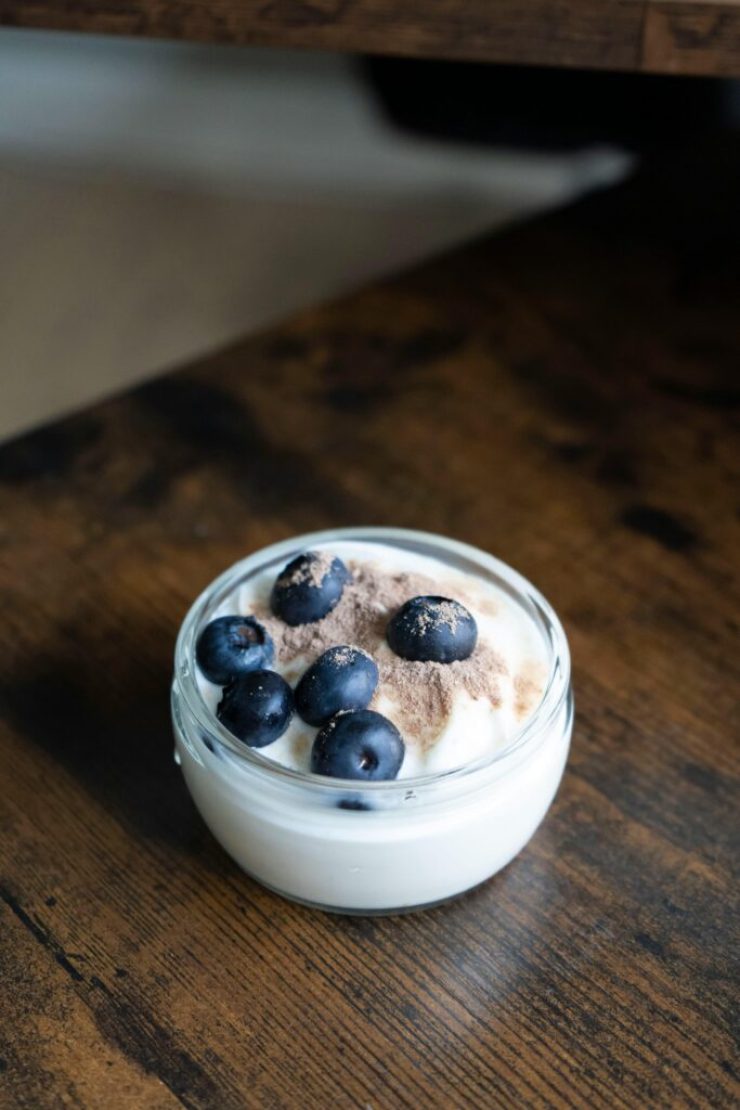Gut health is a cornerstone of overall well-being. The digestive system, often referred to as the “second brain,” plays a crucial role in everything from nutrient absorption to immune function. A healthy gut can boost your mood, energy levels, and even skin health. But how can you maintain a healthy gut microbiome and ensure your digestive system is functioning optimally? In this article, we’ll explore natural ways to improve gut health and digestion, foods that support gut health, and lifestyle changes for better gut health.

Understanding Gut Health and Its Importance
What is Gut Health?
Gut health refers to the balance of microorganisms that live in your digestive tract. These microorganisms, known as the gut microbiome, are essential for digestion, nutrient absorption, and immune function. A healthy gut microbiome is diverse, with a wide variety of bacteria that perform different functions in the body.
Why Gut Health Matters
Maintaining a healthy gut is important for several reasons:
- Digestion and Absorption: A healthy gut helps break down food efficiently, ensuring that your body absorbs the necessary nutrients.
- Immune System Support: Approximately 70% of your immune system resides in the gut. A balanced gut microbiome supports your immune response.
- Mental Health: The gut-brain axis connects your digestive system to your brain, affecting mood and mental health.
- Weight Management: A healthy gut can help regulate metabolism and appetite, playing a role in weight management.
Tips for Nourishing Your Digestive System Naturally
1. Eat a Balanced Diet Rich in Fiber
Fiber is essential for a healthy digestive system. It helps regulate bowel movements and feeds the beneficial bacteria in your gut.
- High-Fiber Foods: Include plenty of fruits, vegetables, whole grains, and legumes in your diet. Foods like apples, beans, and oats are excellent sources of fiber.
- Soluble and Insoluble Fiber: Soluble fiber, found in foods like oats and apples, dissolves in water and helps lower blood sugar and cholesterol. Insoluble fiber, found in whole grains and vegetables, adds bulk to your stool and prevents constipation.
2. Incorporate Probiotics and Prebiotics into Your Diet
Probiotics are live bacteria that are beneficial for gut health, while prebiotics are non-digestible fibers that feed these bacteria.
- Probiotic-Rich Foods: Yogurt, kefir, sauerkraut, kimchi, and other fermented foods are great sources of probiotics.
- Prebiotic Foods: Garlic, onions, bananas, and asparagus are high in prebiotics and help nourish the good bacteria in your gut.
3. Reduce Stress Levels
Stress can negatively impact your gut health by disrupting the gut microbiome and causing digestive issues.
- Stress-Reduction Techniques: Practices like yoga, meditation, and deep breathing exercises can help reduce stress and promote a healthy gut.
- Mindful Eating: Eating slowly and mindfully can improve digestion and reduce stress on your digestive system.
4. Stay Hydrated
Water is crucial for digestion. It helps break down food, absorb nutrients, and move waste through the digestive tract.
- Hydration Tips: Aim to drink at least 8 glasses of water a day. Herbal teas and water-rich fruits like watermelon can also contribute to your hydration needs.
5. Get Regular Exercise
Exercise helps stimulate the muscles in your digestive tract, promoting regular bowel movements and reducing the risk of constipation.
- Types of Exercise: Engage in moderate physical activities like walking, cycling, or swimming for at least 30 minutes a day.
- Yoga for Digestion: Certain yoga poses, like twists and forward bends, can help stimulate digestion and improve gut health.
6. Prioritize Sleep
Sleep is essential for overall health, including gut health. Poor sleep can disrupt the gut microbiome and lead to digestive problems.
- Sleep Tips: Aim for 7-8 hours of quality sleep each night. Establish a regular sleep routine and create a relaxing bedtime environment.
7. Avoid Overuse of Antibiotics
While antibiotics can be necessary for treating infections, overuse can harm the gut microbiome by killing beneficial bacteria.
- Use Antibiotics Wisely: Only take antibiotics when prescribed by a healthcare provider, and follow their instructions carefully.
Foods That Support Gut Health and Digestion
1. Fermented Foods
Fermented foods like yogurt, kefir, kimchi, and sauerkraut are rich in probiotics, which help maintain a healthy gut microbiome.
- How to Include Fermented Foods: Add a serving of yogurt or kefir to your breakfast, or use kimchi and sauerkraut as toppings for salads and sandwiches.
2. High-Fiber Foods
As mentioned earlier, fiber is crucial for gut health. Whole grains, fruits, vegetables, and legumes are excellent sources of both soluble and insoluble fiber.
- Easy Recipes: Try making a fiber-rich salad with beans, quinoa, and a variety of colorful vegetables.
3. Bone Broth
Bone broth is rich in collagen and amino acids, which support the gut lining and improve digestion.
- How to Make Bone Broth: Simmer bones (chicken, beef, or fish) with vegetables and herbs for several hours to make a nutrient-rich broth.
4. Garlic and Onions
These foods are high in prebiotics, which help feed the beneficial bacteria in your gut.
- Cooking Tips: Use garlic and onions as base ingredients in soups, stews, and stir-fries to boost your gut health.
Signs of an Unhealthy Gut and How to Fix It
Common Symptoms of an Unhealthy Gut
- Digestive Issues: Bloating, gas, diarrhea, and constipation are common signs of gut imbalances.
- Food Intolerances: An unhealthy gut can lead to difficulty digesting certain foods.
- Fatigue and Sleep Disturbances: Poor gut health can affect sleep and energy levels.
- Skin Problems: Conditions like eczema and acne can be linked to gut health.
- Autoimmune Conditions: An imbalanced gut microbiome can contribute to autoimmune disorders.
How to Fix an Unhealthy Gut
- Adjust Your Diet: Focus on eating a balanced diet rich in fiber, probiotics, and prebiotics.
- Reduce Stress: Incorporate stress-reduction techniques into your daily routine.
- Get Regular Exercise: Engage in physical activity to promote gut motility.
- Stay Hydrated: Drink plenty of water to support digestion.
- Consult a Healthcare Provider: If symptoms persist, seek advice from a healthcare professional for further evaluation and treatment.
Easy Recipes for Gut-Friendly Meals and Snacks
1. Overnight Oats with Berries and Yogurt
- Ingredients: Rolled oats, Greek yogurt, mixed berries, chia seeds, and honey.
- Instructions: Combine oats, yogurt, berries, chia seeds, and honey in a jar. Refrigerate overnight and enjoy a gut-friendly breakfast in the morning.
2. Quinoa Salad with Avocado and Fermented Vegetables
- Ingredients: Cooked quinoa, avocado, sauerkraut, mixed greens, olive oil, and lemon juice.
- Instructions: Toss quinoa, avocado, and sauerkraut with mixed greens, olive oil, and lemon juice for a fiber-rich, probiotic-packed lunch.
3. Homemade Bone Broth
- Ingredients: Bones (chicken, beef, or fish), water, vegetables (carrots, celery, onions), and herbs (parsley, thyme).
- Instructions: Simmer bones and vegetables in water for several hours. Strain and enjoy as a nourishing drink or base for soups.
4. Banana and Almond Butter Smoothie
- Ingredients: Banana, almond butter, Greek yogurt, flaxseeds, and almond milk.
- Instructions: Blend all ingredients until smooth for a quick and easy gut-friendly snack.
Conclusion
Taking care of your gut health is essential for overall well-being. By incorporating these natural ways to improve gut health and digestion into your daily routine, you can nourish your digestive system and maintain a healthy gut microbiome. Whether it’s through diet, exercise, stress management, or simply staying hydrated, small changes can make a big difference in your digestive health. Remember, a healthy gut is key to a healthy life.
Sources:
- Harvard T.H. Chan School of Public Health: The Microbiome
- Cleveland Clinic: How to Improve Gut Health Naturally
- Mayo Clinic: Gut Microbiome and Your Health









